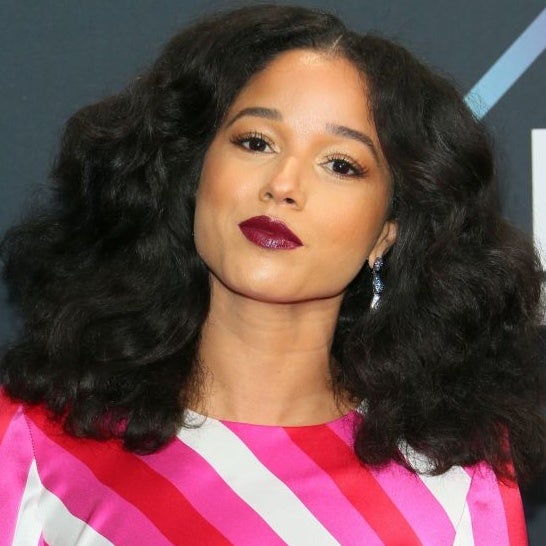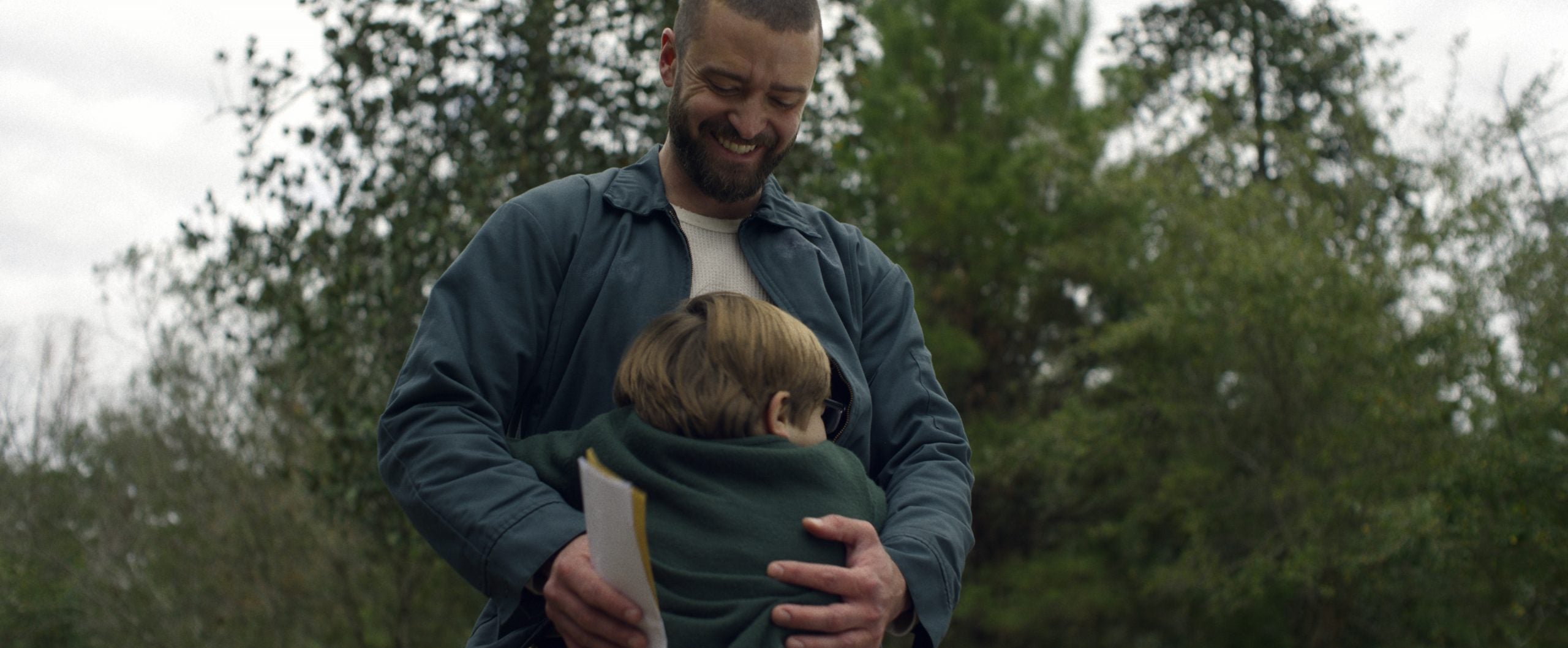
In October 2019, Alisha Wainwright, who kick-started her career with television guest appearances on shows such as Criminal Minds and Lethal Weapon, secured a new role as Justin Timberlake’s co-star in Apple TV+’s latest release, Palmer, which hit the streaming platform today.
The Orlando native conquers the role of Miss Maggie, a sweet and passionate elementary school teacher who embarks on a journey of mental and emotional growth with former high school football star Eddie Palmer (Timberlake) as he mentors a young boy named Sam (Ryder Allen). After being released from a 10-year-prison sentence, Palmer finds an unlikely ally, friend and partner in Miss Maggie and the two rely on one another for support as they protect Sam and each another. Though the Raising Dion star plays a levelheaded, caring tender educator, Maggie is an advocate for authenticity, truth, and heroism.

This movie is a head-on conversation about being yourself and staying true to who you are, despite adversity, bullies, or naysayers. We talked to the powerful woman who championed Sam and stood beside Palmer throughout the entirety of the film, demonstrating the importance of having a strong woman in your corner.
Describe your character Maggie.
ALISHA WAINWRIGHT: Maggie is Sam’s school teacher, and out of everybody in the film, she is the only person who tells the truth the whole way so I think that tells you a lot about her character. She’s very grounded and she’s very loving with her children, her students. I also think she’s deeply non-judgemental and having a non-judgemental person in your life when you’re trying to rehabilitate from leaving prison is a key part of the process of entering into society. I hope everybody who goes through the rehabilitation process has someone like Maggie because she’s such a good person, but she’s a straight shooter too. She will tell Palmer how it is and she’ll always be very honest but it’s coming from a very loving place.
When it came to playing Miss Maggie, what was your emotional and mental connection to her character?
WAINWRIGHT: She takes a special interest in Sam because she knows that he’s had a difficult home life experience. She’s fun, imaginative and these are such positive qualities to play. I never played a teacher before and I’ve never had an interest in being a teacher, personally. Kids are great but wow.
I actually shadowed when I was two hours north of New Orleans at the school we shot at. The teachers, the principal and everyone was just so open and would say, “Shadow, sit and stay as long as you want.” I was shadowing these teachers and what really got me was how many hats they wear. First of all, you’re an educator which is its own thing but then you’re also this liaison between their home life and social life at school. You’re kind of preparing these kids to be little people which I think goes way beyond educating them and teaching them math and reading. I really liked that and I’m so truly in awe of teachers, especially teachers to little ones.
How have teachers and mentors played a role in your upbringing?
WAINWRIGHT: A good teacher instills confidence in a child and allows them to feel independent like they have the skills to go out and then do something on their own. I think everyone can speak to teachers in their lives who have made them feel really good. It was my sixth-grade teacher and there was a poetry contest. He was like, “You should enter,” and I was like, “Me?” First of all, the fact that he pointed it out to me made me feel really special and confident, and I had never looked at my work as something that could be competitive in nature. I ended up doing a couple of drafts with him. after class he would read it and give some extra notes because it was a school-related thing but not a graded thing. I ended up winning and I’ll never forget that all it takes is a teacher being like, “I do this for my profession and I’m looking at you and I think you can do it.” I’m not a poet now but I am very comfortable saying how I feel and being able to communicate with people. Those kinds of skills I garnered in that class. Mr. Moshe, that was his name and if he’s reading this, he’s a great teacher!

One of my favorite scenes in the movie is when Miss Maggie, who came into the classroom on Halloween dressed as the principal, had an emotional connection with Sam, who dressed up as a princess despite being teased by his peers. What was the significance of that moment between the two?
WAINWRIGHT: You bringing up that scene is my favorite scene that I shot in the movie [too] because if you see the kids, they’re just so electrified and excited. It was sweet to see them all dressed up and to be able to find the workaround that doesn’t point out something that’s different but instead celebrates it — I think is one of the beautiful ways that Maggie’s character works. She’s not gonna tell everyone, “Hey, you need to be nice to him,” but she’s just gonna create an experience for these children so that they can see, “Oh, I can just appreciate everything for how it is and not judge it.”
If someone wants to dress up in a princess costume for Halloween, regardless of their gender, and they’re having fun, why not celebrate that? Let’s celebrate joy. Let’s not point out something that feels different because over time when you do that, different becomes normal and that’s the goal when I read this script. My dream would be for normalcy to be normalcy; for different to feel normal. That’s what makes people people. Everyone’s different and everyone’s normal. If you come at it with that perspective, I feel like inherently you’re a more positive, joyful person. Maggie was just trying to share that perspective with these kids, and through that Sam got to feel like he was making a good choice.
How did Miss Maggie help Palmer grow as an individual, and what do you think Maggie learned from him?
WAINWRIGHT: I can’t imagine what it would be like to spend years and years in prison but Maggie’s function in the script is to represent a person who can guide someone back into society. Another favorite scene of mine is when she offers to help him pay his bills and we’ve all been there. I had to learn how to pay bills but when you’re coming out of prison and you’ve missed technology and some of the basic skills, you need someone to walk you through that. Maggie plays that role in his life showing him that it’s not something to be embarrassed about. She’s a teacher so for her, it’s second nature to walk someone through a process. Through spending time with him, it reaffirms her own beliefs. Palmer’s kind of a social pariah in town and she kind of relates to him on that level, being a newcomer and they bond in that way. There’s an initial friendship that benefits her feeling some comradery.
From your stance as an actress, why was it so important for you to play the role of an elementary school teacher and a multifaceted Black woman with so many personality layers on screen?
WAINWRIGHT: We shot this movie before the world changed and I think initially my character was written as a blonde woman. As they were going through the casting process, they didn’t let that limit their scope. When I met with Fisher [Stevens, the director], I vibed with him and he saw exactly what I was doing for Maggie. He envisioned it in the film and they were very open about the scripts like, “Now that we’re changing the character to fit you as a Black woman, do the words you’re saying feel authentic to you?” That level of collaboration that Fisher offered was a representation of something I hope to see in the future because you do see a lot of blind casting. I do think when you hire someone, whoever they may be, you want to make sure that the words they speak are authentic to the body that it’s coming out of.
Through shooting this movie, it made me realize how I don’t get that sometimes. It was nice to be like, “this feels normal,” and by having a conversation like this, I hope moving forward directors and writers feel more comfortable asking for a perspective if they’re changing the ethnicity of a character. The movie’s about Sam’s Journey and there are all kinds of people in this movie and I like Maggie gets to be who she is – a complex person. I appreciate that.
What is something that you learned about yourself through filming Palmer, and what is one thing that you learned from playing Maggie?
WAINWRIGHT: One thing I learned about myself is that I really appreciate the collaboration process in filmmaking. I haven’t made a lot of movies and this was such a great experience to have Fisher Stevens and Cheryl Guerriero so open to my ideas, my perspective and I like that. Once you get a taste of something like that, you want that in every project afterwards. Something I learned about myself through Maggie was that I’m actually really patient. There was a point in my life where I would say I’m not a patient person, but I don’t think that’s true. I think I am a very patient person. Working with a classroom of children who have varying degrees of energy, I was pleasantly surprised by how fun it was and how easygoing I felt through that whole process. Who knows, I could’ve been a teacher. I’m glad other people who are much more capable are doing it but I definitely realized I have patience.